
中国国际私法
¥ 17 4.5折 ¥ 38 九五品
仅1件
北京海淀
认证卖家担保交易快速发货售后保障
作者霍政欣 著
出版社法律出版社
ISBN9787511809056
出版时间2010-07
版次1
装帧平装
开本16开
纸张胶版纸
页数395页
定价38元
上书时间2024-08-03
- 最新上架
商品详情
- 品相描述:九五品
- 商品描述
-
基本信息
书名:中国国际私法
定价:38.00元
作者:霍政欣 著
出版社:法律出版社
出版日期:2010-07-01
ISBN:9787511809056
字数:
页码:395
版次:1
装帧:平装
开本:16开
商品重量:
编辑推荐
内容提要
本书是世界上首部以中国法为视角并用英文写作的国际私法专著,其用途有三:其一,它可以消除横亘在外国学者与中国国际私法之间的语言障碍,促进中、外国际私法学术界的互通互动。其二,它可以为中、外法律实务工作者把握当代中国国际私法实践提供指导。其三,它可作为国际私法双语及全英语教材,用于各法学院校的本科与研究生教学。
目录
PrefaceChapter One Introduction 1.1 Name,Scope and Nature 1.1.1 Name 1.1.2 Scope 1.1.3 Nature 1.2 Definition. A Chinese Approach 1.3 Justification for Private International Law 1.3.1 Justice and Reciprocation 1.3.2 Sovereign Justification 1.3.3 Economic Justification 1.3.4 Chinese Doctrine 1.4 Sources of Private International Law 1.4.1 Domestic Sources 1.4.2 International Sources 1.4.3 Sources of Chinese Private International Law 1.5 Structure and Categories of Conflicts Rules 1.5.1 Structure of Conflicts Rule 1.5.2 CategoriesChapter Two Historical Survey 2.1 European Continental History 2.1.1 Antiquity 2.1.2 Personal Law Period 2.1.3 The Statute Theories 2.1.4 The German Contribution: Seat Theory 2.2 Anglo-American History 2.2.1 English History 2.2.2 American History 2.3 East Asian History 2.3.1 Japanese History 2.3.2 Chinese HistoryChapter Three The Subjects of Private Intemational Law 3.1 Natural Persons 3.1.1 Nationality 3.1.2 Domicile 3.2 Legal Persons 3.2.1 Nationality 3.2.2 Domicile 3.2.3 Recognition of Foreign Legal Persons 3.3 States 3.3.1 Characteristics of States as the Subjects of Private International Law 3.3.2 immunities of States and Their Property 3.4 International organizations 3.4.1 Characteristics of International Organizations as the Subjects of Private International Law 3.4.2 Privileges and immunities 3.4.3 Applicable LawChapter Four Jurisdiction of Courts in IntemaUonal Civil Litigation 4.1 Basic Theory of Jurisdiction 4.1.1 Definition of Jurisdiction in the Context of Private International Law 4.1.2 Categories of Jurisdiction 4.1.3 Conflicts of Jurisdiction 4.2 International Civil Jurisdiction in the United States Courts 4.2.1 Types of Civil Jurisdiction in the United States 4.2.2 Bases for Jurisdiction in the United States 4.2.3 Limits on Jurisdiction: Forum non conveniens 4.3 International Civil Jurisdiction in Chinese Courts 4.3.1 Overview 4.3.2 Jurisdiction of the Chinese People' s Courts in International Civil LitigationChapter Five General Part of Conflicts Law 5.1 Characterization 5.1.1 The Need for Characterization 5.1.2 Conflict of Characterizations 5.1.3 Application of Law for Characterization 5.1.4 Characterization in Chinese People' s Courts 5.2 Renvoi 5.2.1 Definition 5.2.2 Debate on Renvoi 5.2.3 Application of the Doctrine in Certain Foreign Countries/Regions 5.2.3 Renvoi in Chinese Legislation and Judicial Practice 5.3 Proof of Foreign Law and Evasion of Law 5.3.1 Need for the Proof of Foreign Law 5.3.2 Proof of Foreign Law in Some Foreign Jurisdictions 5.3.3 Proof of Foreign Law in Chinese People' s Courts 5.3.4 Evasion of Law 5.4 Public Order Reservation 5.4.1 Introduction 5.4.2 Legislative Development of the Doctrine of Ordre Public in China 5.4.3 Cases in which the Doctrine is Invoked by the People' s Courts of China 5.4.4 Chinese Scholarship on Ordre Public 5.4.5 ConclusionChapter Six Selected Areas of Conflicts Rules 6.1 Capacities 6.1.1 Natural Persons 6.1.2 Legal Persons 6.2 Contracts 6.2.1 Overview 6.2.2 Party Autonomy 6.2.3 Applicable Law in the Absence of Choice 6.3 Torts 6.3.1 Overview 6.3.2 Conflicts Rules in Torts in Certain Foreign Countries 6.3.3 Chinese Conflicts Rules in Torts 6.4 Property 6.4.1 The Distinction in Law between Movables and Immovables 6.4.2 The Law Applicable to Immovables 6.4.3 The Law Applicable to Movables 6.4.4 The Sphere of the Lex Situs 6.4.5 Chinese Conflicts Rules in Property 6.5 Family Issues 6.5.1 Introduction 6.5.2 Marriage and Divorce 6.5.3 Matrimonial Causes 6.5.4 Conclusion 6.6 Succession 6.6.1 Overview 6.6.2 Legal Succession 6.6.3 Testamentary Succession 6.6.4 Vacant Succession 6.6.5 Chinese Legislation and PracticeChapter Seven Recognition and Enforcement of Foreign Judgments 7.1 General Observations 7.1.1 Definitions 7.1.2 Theoretical Basis for Recognition and Enforcement 7.1.3 Conditions of Recognition and Enforcement 7.1.4 Enforcement Procedures of Recognized Foreign Judgments 7.2 Recognition and Enforcement of Foreign Judgments in China 7.2.1 Domestic Rules Regarding Recognition and Enforcement of Foreign Judgments 7.2.2 International Treaties and Bilateral AgreementsChapter Eight Recognition and Enforcement of Foreign Arbitral Awards 8.1 Characteristics of International Commercial Arbitration 8.1.1 Overview 8.1.2 The Meaning of "International" and "Commercial" 8.2 Basic Theory of Recognition and Enforcement of Foreign Awards 8.2.1 Distinction between Recognition and Enforcement 8.2.2 Place of Recognition and Enforcement 8.2.3 Consequences of Refusal of Recognition and Enforcement 8.3 The Regime for the Recognition and Enforcement of Foreign Awards in China 8.3.1 The New York Convention in China 8.3.2 Chinese Domestic Law on Recognition and Enforcement of Foreign AwardsChapter Nine China's Codification of Conflicts Law: Latest Development 9.1 A Brief Summary of the Draft 9.2 Comments on the Important Issues of the Draft 9.2.1 General Provisions 9.2.2 Civil Parties 9.2.3 Family Relationships 9.2.4 Succession 9.2.5 Property or Real Rights 9.2.6 Intellectual Property 9.2.7 Contracts 9.2.8 Torts 9.2.9 Other Civil Relationships 9.3 Concluding RemarksSelected BibliographyAnnexes Annex Ⅰ Glossary of Private International Law Annex Ⅱ Model Law of Private International Law of The People's Republic of China Annex Ⅲ Chapter Eight of the General Principle of Civil Law of the People's Republic of China Annex Ⅳ Part Four of the Civil Procedure Law of the People's Republic of China Annex Ⅴ Part Seven of Opinions on Application of the General Principle of Civil Law Annex Ⅵ Part Eighteen of the Opinions of the Application of the Civil Procedure Law Annex Ⅶ Provisions on Several Issues Concerning the Application of Laws in Hearing the Cases Involving Foreign-related Civil or Commercial Contractual Disputes Annex Ⅷ Cases Study
作者介绍
霍政欣 1976年11月生,2005年6月毕业于武汉大学法学院,获法学博士学位,现就职于中国政法大学国际法学院,兼任中国法学会理事、中国国际私法学会理事、韩国首尔国立大学中国研究所研究员。曾先后赴德国(2001)、奥地利(2003)、荷兰(2004)、美国(2006—2007)、韩国(2009—201
序言
-

【封面】
相关推荐
— 没有更多了 —









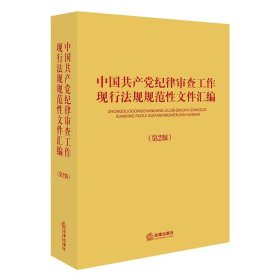





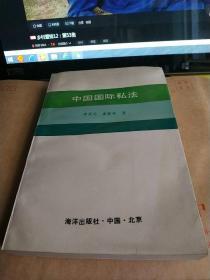


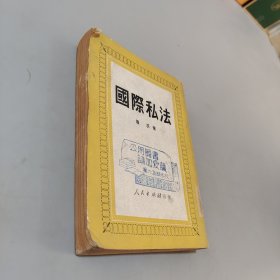
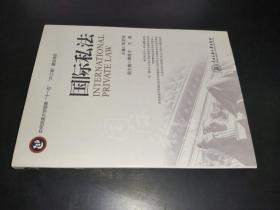
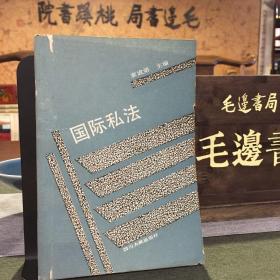
以下为对购买帮助不大的评价